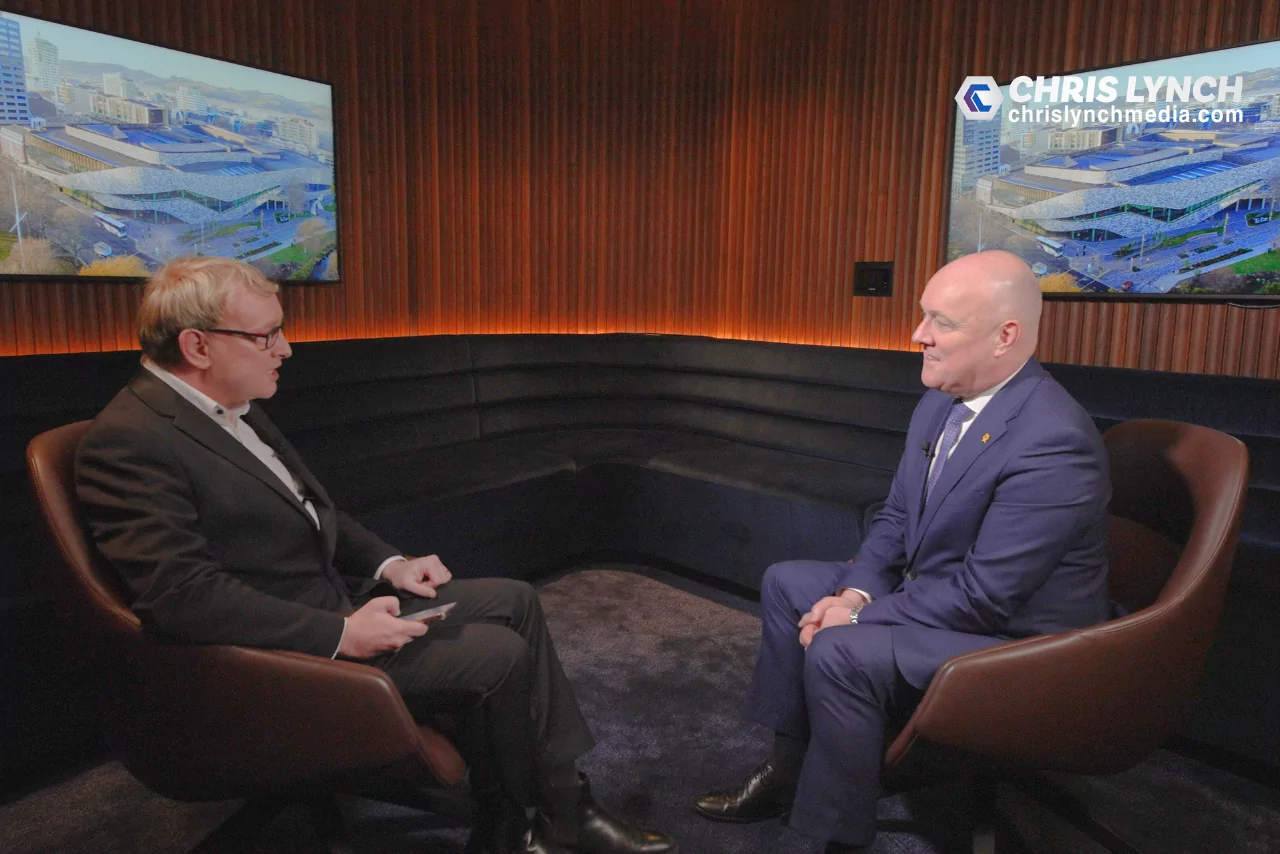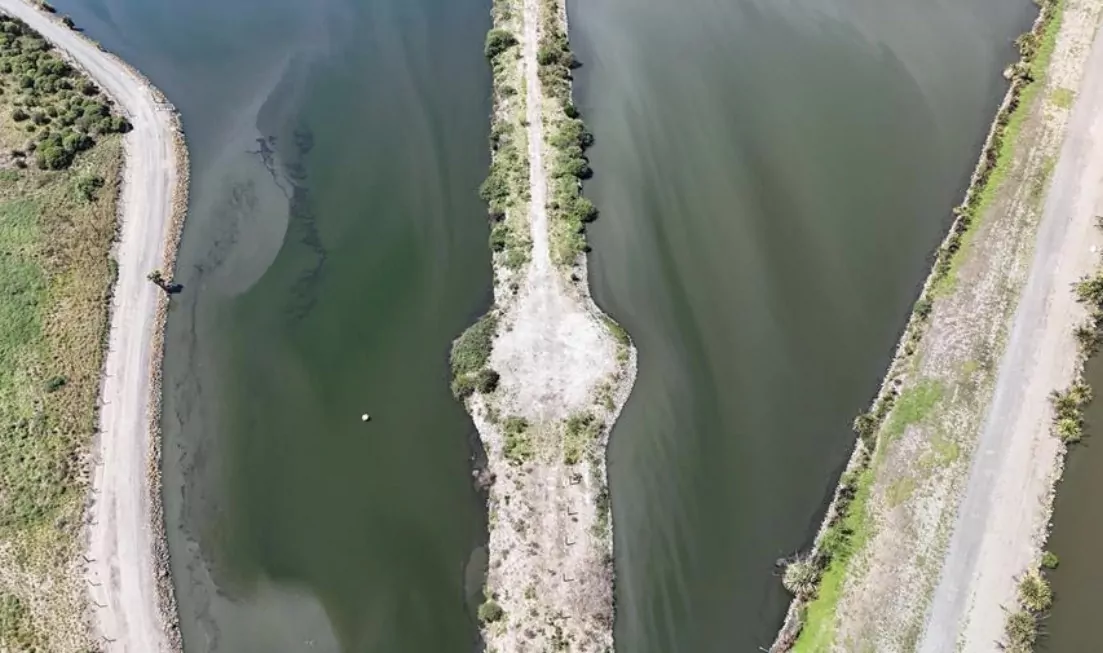Escaped youth tracked by Eagle helicopter, found hiding in New Brighton
The young person who escaped from a youth justice facility in Rolleston has been located...
Prime Minister Christopher Luxon has described comments made by Māori Party president John Tamihere as “vile, disrespectful and disgusting,” saying he would never work with him in government.
On Martyn Bradbury’s The Bradbury Group podcast this week, Tamihere said “This is worse than Nazi Germany, this is a fascist regime that has to be removed.”
Speaking during his regular one-on-one interview with Chris Lynch in Christchurch, Luxon said the comments were “Pretty vile, pretty disrespectful and disgusting frankly. But you know, these are the people that Labour and Chris Hipkins want to be in government with, and certainly I won’t be in government with them. I just think those comments are utterly out of order and pretty disrespectful. But the fact that Labour and Chris Hipkins want to be in power with them, that’s their decision, it’s not mine.”
The Holocaust Centre also condemned the comments made by Tamihere.
The Prime Minister said his government was focused on breaking the supermarket duopoly to bring down grocery prices, with legislation being introduced to fast-track resource consents for supermarket developments.
“What we’ve got to do as a government is do everything we can to make it as easy as possible for a third market entrant or someone to expand into the market. That’s what we can control as government, the regulation,” he said.
Luxon said the changes were already attracting attention. “You’ve seen some really positive remarks from people like Costco, who said this is actually going to make it much easier for us to expand operations here in New Zealand. It means we can get through consenting much quicker, with less cost and less time. That’s all good stuff,” he said.
He also indicated that the grocery commissioner’s powers could be strengthened. “It looks a bit toothless, but we can toughen it up with some real teeth. That would be good,” he said.
Luxon was asked about the closure of Smith City stores, including one in Hornby, due to weak consumer spending.
He said his government had inherited “the biggest recession since the early 1990s” and described New Zealand’s Covid spending as “probably the worst in the world.”
“We’re doing the right things for the long term,” he said, pointing to reforms in tax relief, trade, investment and resource management.
Despite closures, Luxon insisted the recovery was underway. “The economy is growing, which is good for this quarter, and we’re expected to have very strong growth in the fourth quarter at 0.8 percent. This is an economy projected to grow at 2.7 percent a year on average over the next four years, with 240,000 extra jobs,” he said.
Luxon described the recovery as “two-speed,” with Canterbury and rural industries leading the way. “It’s good in the South Island, rural and primary, but it’s really challenged in Auckland and Wellington,” he said.
The Prime Minister said the government wanted Christchurch to secure more major events, with the new stadium opening soon.

“We’ve announced the supercar series in Christchurch and the government has put money into that for a three-year programme. That’s a great investment in a major event that will drive people from Australia into Christchurch and Canterbury,” he said.
“Christchurch is doing better than certainly Auckland and Wellington at the moment. We want to continue to see it really pumping,” Luxon said.
Asked about Christchurch City Council staff ignoring overwhelming public support to retain the Cave Rock Mast lights, Luxon said local democracy mattered.
“It doesn’t sound great, but I just say to the people of Canterbury and Christchurch: you get what you deserve. If you don’t vote in local government, you don’t get representation that represents you,” he said.
On the future of Environment Canterbury, Luxon confirmed there would be changes as part of wider Resource Management Act reforms.
“There’s no doubt that will impact the future roles of regional councils. Exactly what form that takes we’ll announce before the end of the year,” he said.
“With resource consents, and everybody comments on everything, and we don’t get anything done or built. New Zealand, relative to other countries, it’s incredibly slow, incredibly bureaucratic, lots of different inputs between district councils, regional councils, central government. And we’ve got to make it much easier to build things. The RMA is a major driver of that, and that’s why we need to radically simplify it.”
Luxon said he supported extending the parliamentary term to four years and wanted voters to judge him on “results, delivery and improvements.”
“Will New Zealanders be able to go from a 2023 election to a 2026 election and say, look, they have rebuilt this economy, restored law and order, and delivered better public services, particularly in health and education? That’s what I’m focused on,” he said.
Luxon said despite tightening polls, he was confident.
“Every MMP election is very close, but I’m very confident. We’ve inherited a hell of a mess. If you frankly want to go back to tax more, spend more, borrow more, and create the pain and suffering that we’re all just trying to clean up now, I don’t think New Zealand is going to go for that,” he said.


